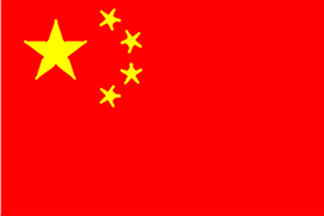There are different situations in which pension is received by an employee. Accordingly the tax treatment for the same also differs.In a situation where pension is received by an employee after retirement but during his lifetime, it is chargeable to tax as follows –
To discuss the tax treatment of the pension received, comprehensively, the employees have been divided in two types, government and non-government. Even the pension received can be of two types, commuted and uncommuted. Uncommuted pension is the periodical payment of pension. For instance, X gets monthly pension of Rs. 2,000/-. It is taxable as salary under section 15 in the hands of a government as well as a non government employee.
Commuted pension is a lump sum payment in lieu of periodical payment. For instance after his retirement, X gets 25 percent of his pension commuted for Rs. 60,000/- (after commutation he will get the remaining 75% i.e. Rs. 1,500/- by way of monthly pension). In this case, Rs. 60,000/- is commuted pension which X has received in lieu of 25% of his monthly pension. The taxability of the commuted pension is dependent upon the status of the employee and whether or not such employee has received gratuity.
If such commuted pension is received by a government employee (i.e. employee of the Central Government, State Government, Local Authority and Statutory Corporation) who may or may not have received gratuity, then such commuted pension would be completely exempt from tax.If such commuted pension is received by a non-government employee who has received gratuity, then only one-third of the pension which he is normally entitled to receive, would be exempt from tax. If the same commuted pension is received by a non-government employee who has not received gratuity, then only one-half of the pension which he is normally entitled to receive is exempt from tax.
If the payment in commutation of pension received by an employee exceeds the aforesaid limits, such excess pension received is liable to tax in the assessment year relevant to the previous year in which it is due or paid. The assessee can however, claim relief under section 89.
Another situation is where pension is received by an employee as per the NPS. The New Pension Scheme or NPS is applicable to new entrants to Government Service or any other employer. As per the scheme, it is mandatory for persons entering the Government service on or after January 1, 2004 to contribute 10 per cent of their salary every month towards a notified pension account. A matching contribution is required to be made by the employer to the said account. The tax treatment under the new scheme is as follows –
1. Contribution by the employer to the notified pension scheme (NPS) is first included under the head “Salaries” in the hands of the employee.
2. Such contribution is deductible to the extent of 10 per cent of the salary of the employee under section 80 CCD(2)
3. Employee’s contribution to the notified pension scheme (NPS) to the extent of 10 per cent of the salary of the employee is also deductible under section 80CCD (1)
4. When pension is received out of the aforesaid amount it will be chargeable to tax in the hands of the recipient.
5. “Salary” for the purpose of points 1 and 2 includes dearness allowance, if the terms of employment so provide, but excludes all other allowances and perquisites.
6. The aggregate amount of deduction under section 80C, 80CCC and 80CCD (1) i.e. contribution by the employee towards the notified pension scheme cannot exceed Rs. 1,00,000/-. Although from the assessment year 2012-13 onwards, employers contribution towards NPS is NOT considered for the purpose of the monetary ceiling of Rs. 1,00,000/-. Which means that any contribution made by the employer to the NPS would be deductible in the hands of the employee over and above the Rs. 1,00,000/- monetary limit but subject to 10 per cent of the salary. This section is called, section 80CCD (2).
Other situations are as follows –
|
Sr. No.
|
Different Situations
|
Tax Treatment
|
|
1
|
Pension received from the UNO by the employee or his family members
|
It is not chargeable to tax.
|
|
2
|
Family pension received by the family members of the armed forces
|
It is exempt under section 10(19) in some cases
|
|
3
|
Family pension received by the family members after the death of an employee (not covered by case 2)
|
It is taxable in the hands of the recipients under section 56 under the head “Income from other sources”. Standard deduction is available under section 57 which is 1/3rd of such pension or Rs. 15,000/- whichever is lower.
|
[The article has been written by Aashish Ramchand. Aashish Ramchand is a Chartered Accountant by qualification and the Co- founder of makemyreturns.com, an online tax advisory and filing site. He is very passionate about Indian taxes and loves to write articles about the Indian tax system. He has worked with KPMG and JRC advisory both in international and domestic taxation respectively. His cumulative experience in taxation is 5 years. He has also completed level 1 of CFA (USA) exam. ]

































